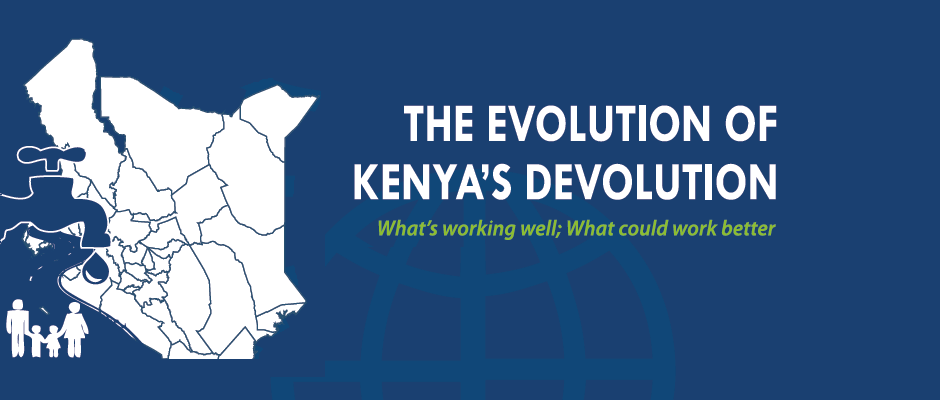
Decentralization has been increasing in developing countries, oftentimes, with the encouragement of development partners. It is estimated that intergovernmental transfers account for about 60 per cent of total local government revenues in developing countries. Given this trend, the question of the relative share of conditional/specific-purpose grants versus unconditional general grants becomes important.
There is growing evidence that large increases in grants, without adequately taking account of the incentives/disincentives created, have the potential to create unforeseen problems in terms of local government performance and longer-term sustainability. Given this, many have advocated for specific-purpose or conditional grants as they have the potential to enhance fiscal equalization at the sub-national level, improve economic efficiency, and promote greater accountability and service delivery. Empirically, conditional grants dwarf unconditional ones in countries like Uganda and Tanzania.
How should such specific purpose grants then be designed?
This is precisely the type of question that concerns countries like Ethiopia as it reviews its specific purpose grants.
A team of researchers and development consultants from Fiscus has been involved in investigating the answers to this question as part of a technical assistance program to the Government of Ethiopia. As part of the process, a comprehensive review of conditional grants in Rwanda, Kenya, South Africa, Uganda, and India was undertaken. From this, four key lessons emerge that should guide developing countries in designing specific purpose grants.
1. Clear conditions must be set for conditional transfers
There should be clear agreement between central and sub-national governments on conditions of the grant. In Kenya, this includes input-based conditions such as a specified expenditure type, output-based conditions such as achieving a set level of service delivery under a performance-based system, and/or a grant-matching requirement where the sub-national government agrees to contribute an agreed percentage. In Rwanda, specific-purpose grants target set sub-accounts, and performance contracts or imihigo are agreed with district-level mayors. India requires states to commit a matching grant, which varies based on regional development. Uganda uses a performance-based financing approach. South Africa legislates conditional grants under the annually updated Division of Revenue Act. The Act requires all grant programs to publish a clear framework setting out rules for allocation and use, measurable objectives, disbursement schedules, reporting requirements and records of past performance. In all five countries, conditions have been credited with improving services delivery.
2. Robust monitoring systems need to be established
Given that clear conditions are agreed, a robust monitoring system is required where results can be documented and tracked. Although Kenya has a strong framework for setting conditions, documenting results is one of the weaknesses of the system. This means that service delivery gains and progress toward development outcomes could be even higher. In contrast, Rwanda has drawn on the traditional imihigo system to enhance accountability. Imihigo targets are linked to performance metrics and scores. Monitoring systems have improved significantly in South Africa. Here, monthly and quarterly sub-national government reports on revenue, expenditures and non-financial performance are submitted to relevant sector departments and the National Treasury, who in turn submit quarterly reports to Parliament. A strong monitoring system improves intergovernmental accountability and service delivery at the sub-national level.
3. Sub-national capacity should be considered
An assumption underlying decentralization is that sub-national governments can deliver once they have access to finances. Evidence from India and South Africa suggest that regional-level implementation capacity can often constrain service delivery. This implies that effort must be placed on strengthening local capacity when intergovernmental transfer systems are being reformed. This may be done through a conditional grant similar to the Capacity-Building Grant in South Africa, which aims to develop management, planning, technical and budgeting skills in municipalities.
4. A balance with regional autonomy is needed
Some have argued that earmarked transfers, if excessively used, can limit regional spending autonomy. For instance, 80 percent of transfers to districts in Rwanda are earmarked for precise activities, with only 20 per cent left for discretionary spending. Conditional transfers should therefore be cognizant of the larger decentralization agenda, which often aims to give more power to subnational governments. For example, if regions are responsible for education spending, an earmarked grant can complement this by focusing on the poorest schools or poorest children. In so doing, the fiscal autonomy of the regions is preserved, but pro-poor spending is enhanced.
In sum, specific-purpose grants have significant potential to enhance service delivery and achieve development goals. To maximise benefits, these instruments should have set conditions and robust mentoring frameworks, which are cognisant of local capabilities and respectful of subnational autonomy.
This post by Jamelia Harris, a Research Economist at Fiscus and Visiting Research Fellow at the Politics and International Studies Department, University of Warwick, originally appeared on the Warwick Interdisciplinary Research Centre for International Development (WICID) website.
The post is based on a journal article by Jamelia Harris. Her research spans a range of topics and includes foreign aid and the labor market, political patronage, and government finances.





